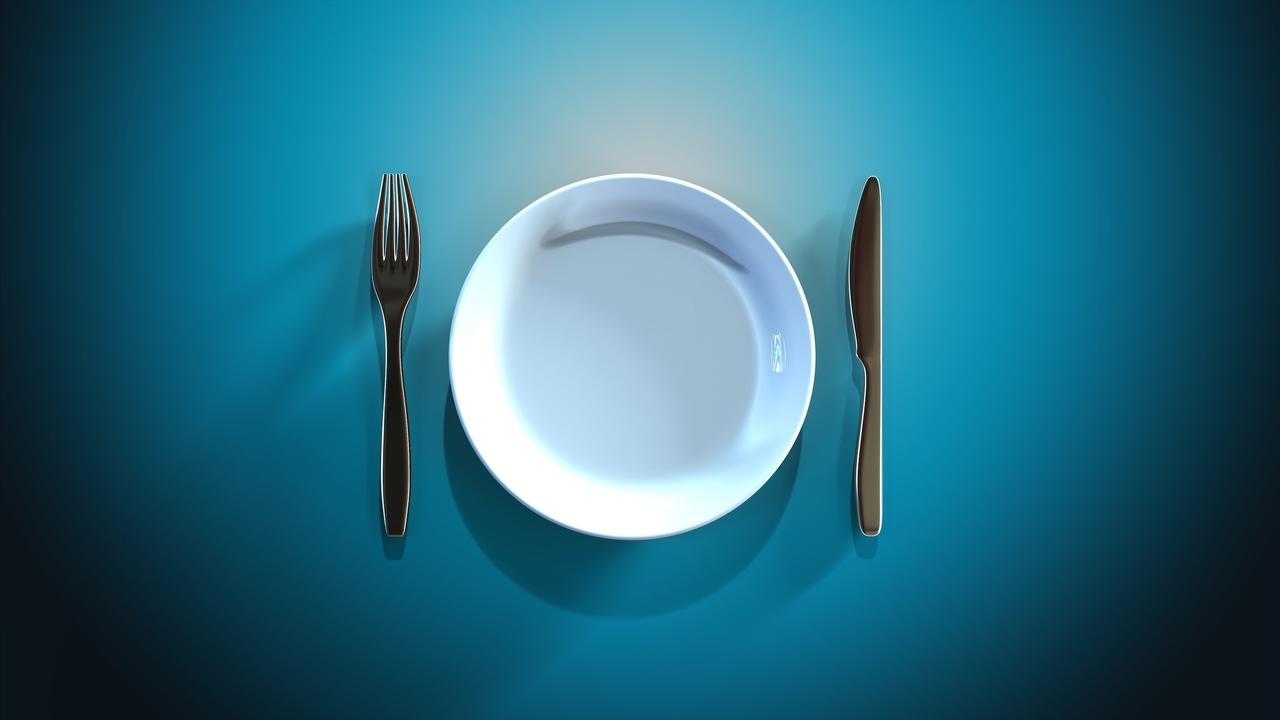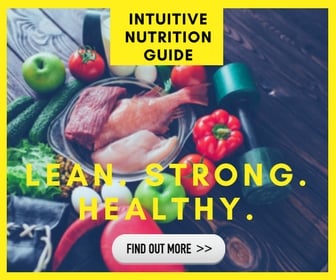When it comes to fitness, performance, and health every once in a great while my mind gets completely blown. I'm talking about “shake my foundations of knowledge” type of mind blown. The last time this really happened to me was about 9 years ago. When new information shocks us or shakes our belief foundations, it's typically because said information contradicts what we may have considered to be common knowledge. This common knowledge becomes accepted as fact once it's echoed by enough people and credible organizations, not necessarily because its supported by science or evidence. What I am about to share was such a bedrock of truth in fitness that no one even dared to question it. It was believed to be so accurate that questioning it would immediately get you labeled as an idiot. I am talking about the myth of eating small meals.
9 years ago I owned a small wellness studio. We offered personal training, massage therapy, acupuncture, physical therapy and gut testing. I've always been open-minded with subjects I felt I needed to learn more about, but when it came to nutrition and fitness I considered myself all-knowing (LOL). I lifted weights a particular way, I took certain supplements and I ate 6-8 small meals every day. I often would change my workouts and supplements and diet but I never touched how many meals I ate. I literally would make all my meals and portion them out the day before and bring all my meals to work in plastic containers. It was a staple…after all I had read that eating small meals would build more muscle and burn more fat than eating fewer meals in every muscle building magazine and personal training certification course I had taken. It was widely regarded as truth. In fact, I laughed when wellness “hippies” would advocate for fasting to “detox.” “The body does a fine enough job of detoxing naturally,” I thought. “Plus who would want to look like those skinny wellness yogis anyways? Not eating every 2 hours promotes a catabolic state and it puts the body into “starvation” mode which promoted fat loss.” Boy was I wrong.
One day while perusing fitness forums online (I did this to keep up to date on the latest fitness science) I came across a thread that talked about fasting. What made me look deeper was that this thread was in a bodybuilding forum. Bodybuilders were the last people I ever expected to talk about fasting so I dove in. People were raving about a new book titled “The Warrior Diet” and were posting pictures of themselves and they were all muscular ripped and healthy looking people who only ate ONE TIME A DAY. I thought this was crazy but the pictures kept coming in so I decided to look for evidence to support my hard-held belief in small meals. I was blown away to find ZERO EVIDENCE that small meals does anything positive at all for people.
The next day I did my first fast. I ate nothing all day until I got home from work at 8 pm. I expected a crappy workout and to feel terrible all day. Instead, the opposite happened, I felt great and had a great workout. I followed this protocol daily for a week fully expecting to lose muscle and gain some fat. Again, my body didn’t change at all. MIND BLOWN.
Today its become common knowledge that fasting offers tremendous health benefits. The documented benefits include lower risk of cancer, lower blood pressure, better cholesterol ratios, controlled blood sugar levels, fat loss, lowered inflammation, increased neurogenesis (brain cell growth)….the list is too long to put in this article. Everyone has heard of intermittent fasting these days. With all the new science coming out showing the benefits and with all the new blogs, podcasts, youtube videos, and the like talking about the benefits of fasting it would seem like fasting is great for everyone. WRONG. It can be healthy when done properly and in the right context. For some people, fasting is a bad idea.
The percentage of people who come to me and ask about fasting who are NOT in normal good health is large. Many times it’s the super obese who are looking for a great way to lose weight or its people who are trying to correct a health issue. Although fasting can promote fat loss through the reduced consumption of calories that does not make it a fat loss tool. In fact, if you have a “damaged metabolism” aka “adrenal fatigue” aka “HPA axis dysfunction” (my preferred term) going for 24 hours without food may actually promote MORE dysfunction and further slow down your metabolism. When you don’t eat your body is typically in a sympathetic “flight or fight” state which means higher stress hormones and higher levels of certain chemicals like norepinephrine. There is nothing inherently wrong with being in that state if you are otherwise healthy but if your body is already under lots of stress or your metabolism has adapted to become slow (due to over exercise or over dieting) then you will only be making things worse. Fasting for relatively short periods of time (24-72 hours) is not a stress on the body when all things are good but the context of HPA axis dysfunction it becomes an additional stress on the body.
If your diet, exercise, and sleep aren’t doing well then fasting should probably not be a priority. Although fasting can provide benefits under many circumstances it's not at the top of the list of things you should be focused on for your health, fat loss or muscle building. Heck at least half of the unhealthy clients I've trained over the last 20 years ate only once a day and they all had high body fat percentages and little muscle. Before you entertain the idea of fasting make sure you are prioritizing proper nutrition, exercise, and good sleep.
Now that we have that clear let's talk about who SHOULD try fasting. Pretty much anyone who is over 18, not pregnant and who is in good health with good fitness, nutrition, and sleep practices can benefit from fasting. The physical benefits are tremendous, but it’s the emotional benefits that I find most appealing. Disconnecting from food for an entire day or longer really puts you inside your body. During a fast, you can begin to realize just how much of your daily schedule revolves around food. You find time windows opening up for whatever else you may want to accomplish. You also realize just how much of your hunger isn’t really hunger but rather cravings which are almost always fueled by emotion like anger, sadness or anxiety. Or you crave food because of context like you are at the movies or its lunch time. Semi-regular fasting can be a powerful tool for physical and mental health, but like all powerful tools if it's used in the wrong way or in the wrong context it can do just as much harm as good. Get your nutrition on track, get good sleep and good activity and then try fasting for yourself, you may be surprised at just how beneficial it can be.






